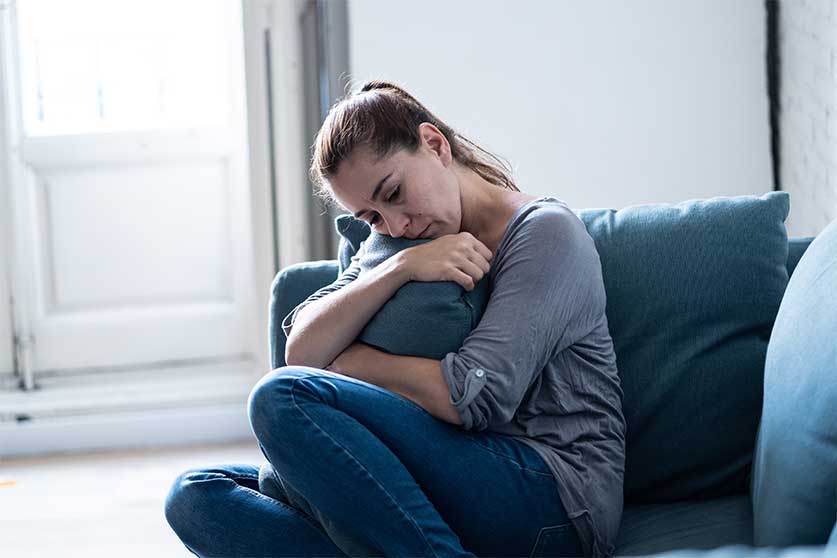Treatment For Schizoaffective Disorder In Ohio

Medically Reviewed By: Manish Mishra, MBBS
Schizoaffective disorder is a serious mental health condition characterized by a blend of mood symptoms as well as symptoms of psychosis. At Ohio Recovery Center, we host residential treatment for schizoaffective disorder.

Schizoaffective disorder is one of the most commonly misdiagnosed mental illnesses, often being mistaken for either bipolar disorder or schizophrenia as it can encompass certain elements of both of these serious mental health conditions.
While receiving any diagnosis of a mental disorder can be distressing, there are a variety of effective psychiatric treatments available that can help those struggling with schizoaffective disorder to correct and control their condition and build a lasting, healthy, and positive life.
Schizoaffective Disorder Treatment At Ohio Recovery Center
Ohio Recovery Center (ORC) is a primary mental health treatment provider offering professional treatment services for substance use disorders and mental health issues, including schizoaffective disorder.
At ORC, our multidisciplinary services are led by compassionate, trained, and licensed clinicians and include medications, stabilization services, one-on-one psychotherapy, group therapy, and other evidence-based elements of care.
Schizoaffective Disorder
At one time, schizoaffective disorder was considered a subtype of schizophrenia, a condition with which it shares a variety of signs and symptoms.
However, it is now recognized as its own unique mental health condition characterized by a combination of symptoms of schizophrenia (hallucinations and/or delusions) and symptoms of a mood disorder (depression or manic depression).
Left untreated and unmanaged, those struggling with schizoaffective disorder will often have trouble functioning at work or in school and may struggle with their relationships, leading to isolation and a breakdown in their personal support system.
Types Of Schizoaffective Disorders
Schizoaffective disorder generally presents in one of two distinct subtypes:
- bipolar type: characterized by periods of both mania and major depressive episodes
- depressive type: characterized by only major depressive episodes
Diagnosis
For a person to be diagnosed with schizoaffective disorder, they must meet specific criteria laid out in the Diagnostic and Statistical Manual of Mental Disorders (DSM-5), published by the American Psychiatric Association.
This criteria includes both persistent mood problems and psychotic symptoms, ruling out other potential disorders and underlying causes.
Diagnosis of schizoaffective disorder will likely include a physical exam as well as tests, screenings, and a psychiatric evaluation performed by a mental health professional.
Signs & Symptoms
Symptoms of schizoaffective disorder can vary by type, but generally include:
- delusions
- hallucinations
- disorganized speech
- bizarre or unusual behavior or catatonia
- problems with pleasure, motivation, and other negative symptoms
- symptoms of depression
- manic episodes
These symptoms are generally severe enough to impact a person’s self care and daily life but must not be caused by substance abuse or any other psychotic disorder, mood disorder, anxiety disorder, or alternative health problem.
Risk Factors
The primary cause of schizoaffective disorder is believed to be genetic or, potentially, environmental factors relating to brain structure.
Those who are diagnosed with the disorder may also have close family members who experienced schizoaffective disorder, schizophrenia, or bipolar disorder.
Using mind-altering drugs and experiencing stressful or traumatic events may also trigger the emergence of schizoaffective symptoms in some who are genetically predisposed.
Statistics
Schizoaffective disorder is estimated to occur in around .03% of the American population, which translates to around 995,700 people in the United States as a whole and 35,300 Ohioans. It has a slightly higher incidence in women than men (particularly the depressive subtype).
Treatment For Schizoaffective Disorder
Effective treatments for schizoaffective disorder are generally similar to those used to treat both schizophrenia and bipolar disorder.
Medication
The atypical antipsychotic medication Paliperidone (Invega) is currently the only medication specifically approved by the FDA for use in treating schizoaffective disorder.
However, a variety of other drugs, including the mood stabilizer lithium, clozapine (Clozaril), aripiprazole (Abilify), risperidone (Risperdal), olanzapine (Zyprexa), and a number of antidepressants, are also commonly used for the long-term treatment of this condition.
Psychotherapy
Behavioral therapies, including cognitive behavioral therapy, family therapy, and other individual or group-based forms of therapy, can be recommended treatment interventions that can greatly improve the quality of life for those experiencing schizoaffective symptoms.
Other Treatment Options
Additionally, personalized treatment plans for schizoaffective disorder may include important life and social skills training, self-management strategies, and participation in peer support groups for those with psychotic disorders.
Electroconvulsive therapy may also be recommended in certain situations.
How To Find Schizoaffective Disorder Treatment In Ohio
There are many different strategies you can use to connect with mental health professionals in Ohio:
PCP Or Family Physician
If you feel comfortable, you should connect with your doctor and ask for a referral to a mental health specialist suitable for your situation.
Reach Out To Local Treatment Providers
Alternatively, you can reach out directly to mental health providers of your choosing, especially those like Ohio Recovery Center who specialize in effectively addressing severe mental health conditions like schizoaffective disorder.
SAMHSA
Lastly, you can anonymously contact the SAMHSA helpline or use the organization’s Find Treatment service to identify approved mental health providers across the United States and learn more about what services they offer and what forms of payment and financial aid they accept.
If you or your loved ones have been diagnosed with schizoaffective disorder or another psychotic disorder or mood disorder, we can help. Reach out to Ohio Recovery Center today to learn more.
- National Alliance on Mental Illness (NAMI) — Schizoaffective Disorder https://www.nami.org/About-Mental-Illness/Mental-Health-Conditions/Schizoaffective-Disorder
- National Library of Medicine: MedlinePlus — Paliperidone https://medlineplus.gov/druginfo/meds/a607005.html
- Substance Abuse and Mental Health Services Administration (SAMHSA) — Find Help and Treatment https://www.samhsa.gov/find-help

